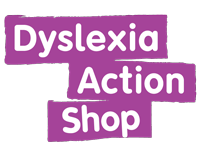This website uses cookies to ensure you get the best experience on our website. About consent.
ABAS-3 - Adaptive Behaviour Assessment System, Third Edition, Product Range
Required qualifications
Assessment Qualification at Level 7 e.g. CPT3A and Sector Specific BA (Hons) / B.Ed Hons or Bsc subjector CCET Level 7 and Sector Specific BA (Hons) / B.Ed Hons or Bsc subject
or PGCert /PGDip/MA/MEd/MSc in SEN (including psychological assessment) SpLD APC or equivalent and Sector Specific BA (Hons) / B.Ed Hons or Bsc subject
or HLTA Status and CCET Level 7 and Sector Specific BA (Hons) / B.Ed Hons or Bsc subject
or Psychologist, SaLT or OT
or HCPC Registered Practising, Chartered, Clinical, Forensic or Educational Psychologist
or Professional Body Membership e.g. DA Guild MDG and Sector Specific BA (Hons) / B.Ed Hons or Bsc subject
or Assessment Qualification at Level 7 e.g. CPT3A and HLTA Status and Sector Specific BA (Hons) / B.Ed Hons or Bsc subject
Provides a complete assessment of adaptive skills across the life span Assess adaptive skills.
The ABAS-3 combines all-new norms with updated item content to create the leading adaptive skills assessment. Retaining all features that made the second edition the preferred instrument for evaluating adaptive behavior, the ABAS-3 is even easier to administer and score. Comprehensive, convenient, and cost-effective, this behavior rating scale measures daily living skills—what people actually do, or can do, without assistance from others. It is particularly useful for evaluating those with developmental delays, autism spectrum disorder, intellectual disability, learning disabilities, neuropsychological disorders, and sensory or physical impairments.
"Multiple Raters, Different Perspectives
The ABAS-3 includes five rating forms, each for a specific age range and rater:
Parent/Primary Caregiver Form (Ages 0–5)
Teacher/Daycare Provider Form (Ages 2–5)
Parent Form (Ages 5–21)
Teacher Form (Ages 5–21)
Adult Form (Ages 16–89)"
BENEFITS-
- Provides a complete assessment of adaptive skills across the life span Assess adaptive skills.
- Diagnose and classify various developmental, learning, and behavioral disabilities and disorders. Identify strengths and weaknesses.
- Develop treatment plans and training goals.
- Document and monitor progress over time.
- Determine eligibility for services such as Social Security disability benefits, and evaluate capacity to live or work independently.
- Facilitate research and program evaluation.


